Magic Mushroom Gummies: Boosting Dopamine with Edible Psilocybin
Magic Mushroom Gummies, containing psilocybin, interact with brain serotonin receptors, boosting dop…….
In the realm of alternative wellness, a fascinating intersection has emerged between traditional psychedelics and modern neuroscience—introducing magic mushroom gummies. These innovative products, derived from the active compounds found in psilocybin mushrooms, have sparked both curiosity and debate in recent years. This article delves into the intricate world of magic mushroom gummies and their impact on dopamine levels, exploring their historical roots, global rise, economic implications, technological innovations, regulatory landscape, and potential future directions. By examining these aspects, we aim to provide a comprehensive understanding of this cutting-edge approach to mental health and wellness.
Magic mushroom gummies are edible cannabis products infused with psilocybin, a naturally occurring psychedelic compound found in certain species of mushrooms. Psilocybin is known for its ability to enhance neural connectivity and modulate neurotransmitters, including dopamine, in the brain. When consumed, psilocybin breaks down into psilocin, which interacts with serotonin receptors, leading to altered cognitive states and potential therapeutic effects.
The use of psychedelic mushrooms dates back centuries in various cultures worldwide. Indigenous communities have long utilized these mushrooms for their spiritual and medicinal properties. However, modern interest in psilocybin-based therapies emerged in the mid-20th century with increased scientific exploration. Researchers began to study psilocybin’s potential benefits for mental health conditions, such as depression, anxiety, and post-traumatic stress disorder (PTSD). This resurgence of interest led to the development of magic mushroom gummies, offering a more accessible and palatable way to deliver therapeutic doses of psilocybin.
The focus on dopamine levels in this context is crucial because dopamine plays a central role in reward, motivation, and cognitive function. Magic mushroom gummies aim to manipulate dopamine activity to promote neuroplasticity, enhance emotional well-being, and potentially offer relief from various psychological disorders. This approach has gained attention for its non-invasive nature and the promising outcomes reported in clinical trials. Furthermore, as a natural product with minimal side effects compared to traditional pharmaceuticals, magic mushroom gummies present an intriguing alternative for individuals seeking complementary treatments.
The concept of magic mushroom gummies has spread globally, reflecting a growing interest in psychedelic-assisted therapy. Countries like the United States, Canada, Germany, and several countries in Europe have led the way in legalizing psilocybin research and therapeutic applications. This global trend is driven by changing attitudes towards mental health, increasing demand for alternative treatments, and mounting scientific evidence supporting the benefits of psychedelics.
The global psychedelic market, including magic mushroom gummies, is experiencing significant growth. This expansion can be attributed to the rising acceptance of psychedelics in clinical settings, increasing investment from venture capital firms, and growing consumer demand for natural, alternative treatments. According to a report by Grand View Research, the global psychedelic drugs market size was valued at USD 6.1 billion in 2020 and is expected to grow at a compound annual growth rate (CAGR) of 37.4% from 2021 to 2028.
Venture capital firms have shown a notable interest in psychedelic-related startups, particularly those focused on therapy and consumer products. In 2021, the market witnessed several significant investments, with companies like Compass Pathways raising substantial funds for their psilocybin therapy development. This influx of investment indicates the market’s potential for growth and profitability.
The economic implications are far-reaching, impacting healthcare systems, research institutions, and consumer goods industries. As magic mushroom gummies gain mainstream acceptance, they could contribute to:
Advancements in extraction methods have improved the efficiency and consistency of psilocybin isolation from mushrooms. Sophisticated techniques like liquid chromatography and supercritical CO2 extraction ensure higher purity and yield. Once extracted, psilocybin is infused into various carrier products, such as gummies, capsules, or beverages, making it more palatable and convenient for consumers.
One of the key challenges in psychedelic therapy is ensuring precise dosage control to achieve therapeutic effects while minimizing adverse reactions. Modern technology enables manufacturers to create standardized dosages, allowing for personalized treatment plans. Mobile apps and digital platforms are also being developed to help patients track their progress and adjust dosages accordingly.
The integration of technology in psychedelic-assisted therapy is revolutionizing patient care. Virtual reality (VR) and augmented reality (AR) experiences are being utilized to enhance therapeutic outcomes, providing immersive environments for exposure therapy and cognitive behavioral therapy (CBT). Additionally, digital platforms offer remote access to therapy sessions, making psychedelic-based treatments more accessible globally.
The legal status of magic mushroom gummies varies widely across countries. While some nations have fully legalized psilocybin for medical and therapeutic purposes, others maintain strict prohibitions. As of 2022, at least 30 countries have decriminalized or legalized psychedelic substances to some extent, with varying levels of regulation and accessibility.
Regulatory bodies face challenges in balancing public safety, scientific oversight, and consumer protection while navigating the complex cultural and legal landscapes surrounding psychedelics. However, opportunities exist for collaboration between governments, researchers, and industry leaders to establish robust regulations. Standardization of dosage, quality control measures, and ongoing research are essential components of effective regulation.
The future of magic mushroom gummies is closely tied to ongoing clinical research. As more studies demonstrate their therapeutic potential, we can expect an expansion in approved indications, including treatment-resistant depression, anxiety disorders, and substance use disorders. Increased access to clinical trials will provide valuable data on dosage optimization, patient demographics, and long-term outcomes.
Integrating magic mushroom gummies into mainstream healthcare systems is a potential future scenario. This integration could involve partnerships between psychiatrists, neuroscientists, and psychedelic therapy centers to offer comprehensive care. Such integration would ensure that patients receive proper monitoring, psychological support, and access to ongoing research.
Addressing global accessibility is crucial for ensuring equitable access to magic mushroom gummies as a therapeutic tool. This involves cultural sensitivity, addressing language barriers, and developing accessible digital resources. Collaboration between international organizations and local communities can facilitate the responsible rollout of psychedelic-assisted therapy globally.
Magic mushroom gummies represent a fascinating convergence of neuroscience, technology, and wellness. As global interest continues to grow, ongoing research and regulatory developments will shape the future of this innovative approach to mental health. By understanding their historical roots, global impact, economic potential, technological advancements, and regulatory landscape, we can appreciate the complex role magic mushroom gummies play in modern wellness and healthcare. With proper scientific exploration and responsible integration into healthcare systems, these natural compounds may offer transformative benefits to individuals seeking alternative therapeutic options.
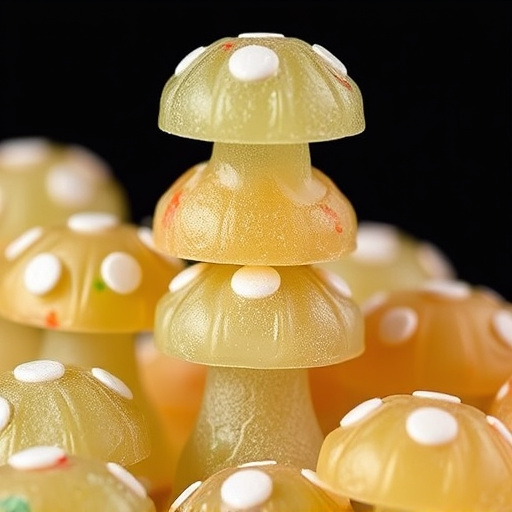
Magic Mushroom Gummies, containing psilocybin, interact with brain serotonin receptors, boosting dop…….
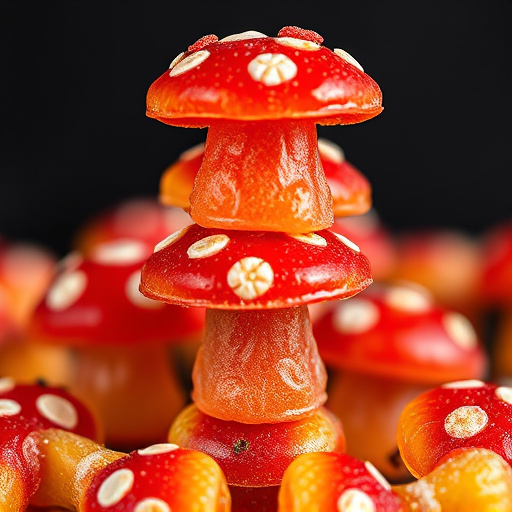
Magic Mushroom Gummies represent a modern therapy for mental health conditions by boosting dopamine…….
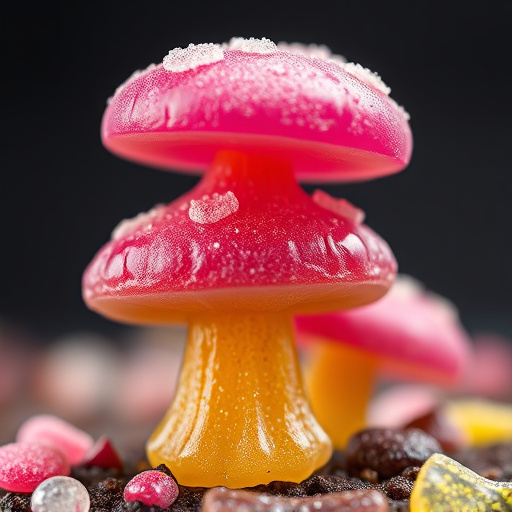
Magic Mushroom Gummies offer a modern, controlled way to harness therapeutic psilocybin for mental h…….
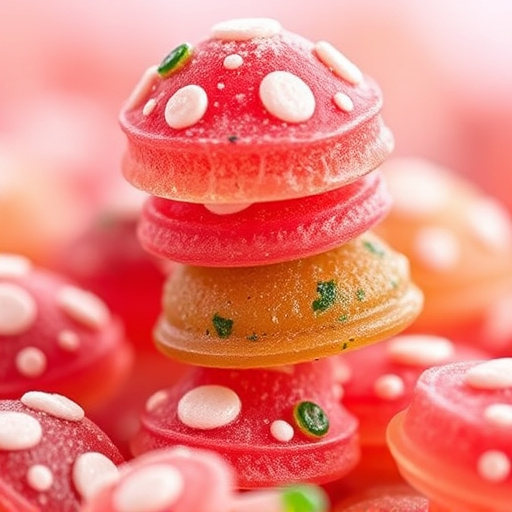
Magic Mushroom Gummies are modern, convenient, and discrete edibles that mimic the effects of tradit…….
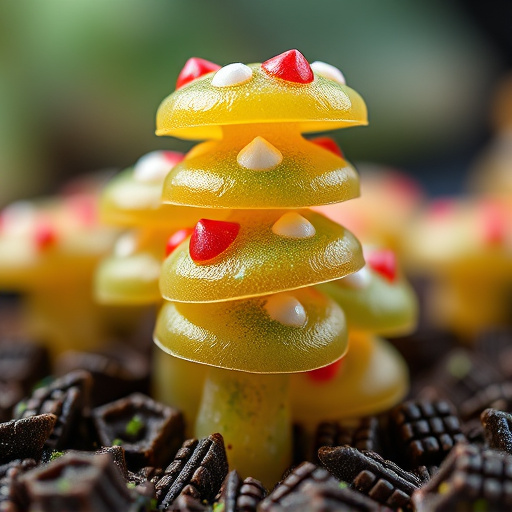
Magic Mushroom Gummies, popular for their psilocybin delivery, stimulate dopamine release leading to…….
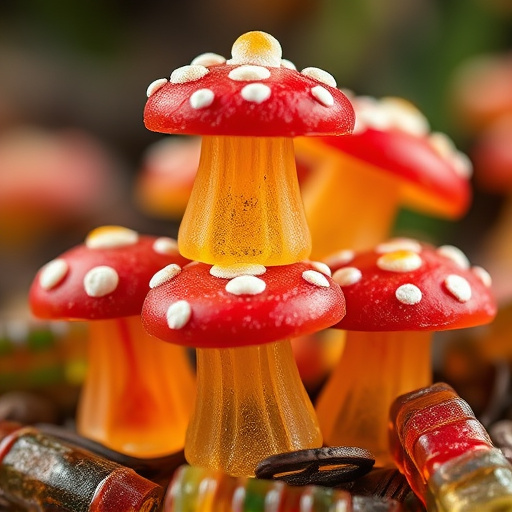
Magic Mushroom gummies, discreetly enhancing dopamine levels, offer pleasurable effects like euphori…….
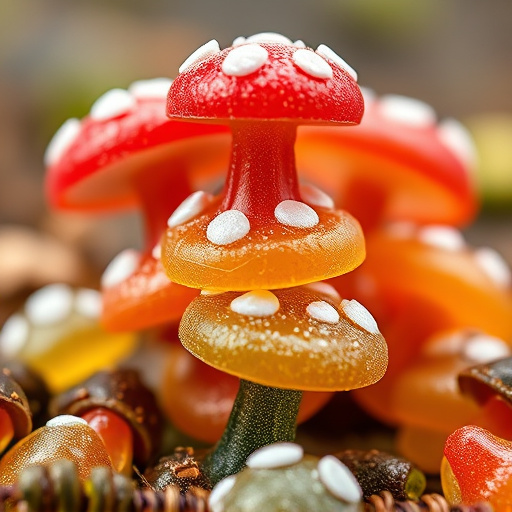
Magic Mushroom Gummies, containing psilocybin from Amanita species, interact with dopamine levels in…….
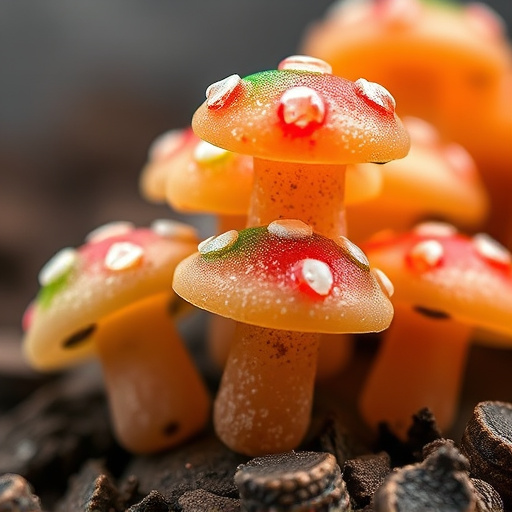
Magic Mushroom Gummies represent a modern, controlled way to experience psychedelic effects, boostin…….
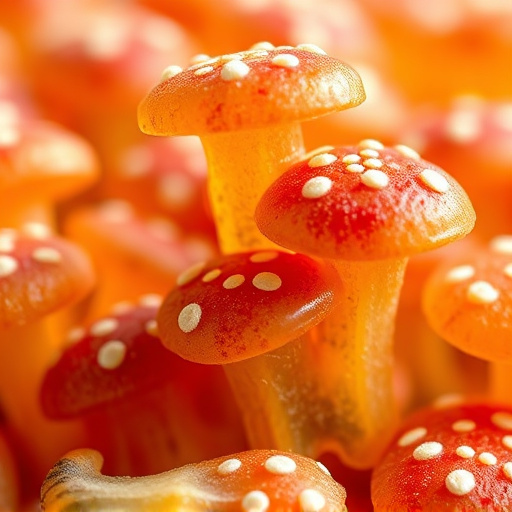
Magic mushroom gummies, containing psilocybin, are gaining recognition as a potential natural remedy…….